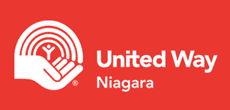Author: Krystal Snider, Executive Disruptor, Collaborative Community Solutions
July 30 is World Day Against Trafficking in Persons. United Nations theme of “Victims’ Voices Lead the Way” puts victims of human trafficking at the centre of the campaign. As someone who has experienced this trauma, I was touched when United Way Niagara reached out to me to write this short blog post.
This year’s theme is significant to me as a survivor of sex trafficking focused on bringing education, awareness, and responses to the Niagara Region. Too often, anti-trafficking initiatives lack survivor voices and perspectives, missing the mark on the complexities of the experiences and support needed to heal. I have had the absolute honour to work with survivors who advocated for change, shared their stories, and supported so many others who have been trafficked and exploited.
As a survivor and parent to a 15-year-old, I consistently must remind myself of the balance of awareness and caution over fear-based parenting.
For me, I think it’s essential to share some common signs of trafficking and ways that families can care for each other so that I might raise awareness and continue to educate. We are fortunate in Niagara to have a variety of services available to support survivors and their families. When I think about my previous experience, it is difficult to say what one thing would have been helpful to prevent it. Instead, I believe multiple vulnerabilities, all rooted in systemic inequities, were exploited by my traffickers.
I should also include that when you hear about trafficking all the time or when you are in anti-trafficking work, you can feel like everyone is being trafficked or is a trafficker. As a survivor and parent to a 15-year-old, I consistently must remind myself of the balance of awareness and caution over fear-based parenting. It is difficult and imperfect, but I try very hard to remind myself that not everyone is a trafficker, and my daughter does not have the same vulnerabilities I had at her age.
Knowing some of the signs that I will share with you today has been helpful. First, it is important to know that many people are lured by a “boyfriend or friend” type relationship, but others are also drawn by family members, employers, or other people in their lives. Common themes to watch out for in the luring/grooming stages of sex trafficking are:
- Receiving new gifts, clothes, jewellery etc. or an increase in money that is odd
- Have a new relationship with someone that is taking up all of their time and attention but may not be bringing them around to meet family
- Coming home late or not at all, missing school or leaving school in the middle of the day
- Begin using substances or increase in substance use
- Withdrawal from family and friends
- Recruited for a job where there is little to no information available about the company
- Change in behaviour or character
It’s important to note here that not all survivors experienced these signs and that not all people who experience some of these signs are trafficked. These should be a useful guide and an opportunity to open a dialogue or reach out for support. I often remind parents and caregivers that sometimes you have to listen to your gut feelings in addition to these signs. Too often, we are disconnected or minimizing our intuition and it is that very alarm that can give us the most information. In terms of prevention, I truly believe in early conversations about healthy relationships and consent.
There are many great resources available to support having those conversations. It is important to teach young people about online safety and model boundary setting, and respect for boundaries. Finally, back to that intuition, help the young people in your lives stay in touch with that knowledge and talk about what to do when that inner alarm bell goes off.
Trafficking is a devastating crime that has severe impacts on the survivor, communities, and family members. If you are concerned that a young person is being trafficked or there is an emergency, call 9-1-1. If you are unsure if a person in your life is being lured/groomed reach out to the Canadian Center to End Human Trafficking. They have a 24/7 line to provide tips and referrals and get you connected to available resources. 1-833-900-1010.
What is Human Trafficking
Human trafficking involves the recruitment, transportation, harbouring, and/or exercising control, direction, or influence over the movements of a person, for the purpose of exploitation.
As United Way Niagara continues to tackle important issues locally, we are proud to support local agencies efforts to secure housing and resources for survivors of human trafficking in the region. The YW Safe House: “Home, to New Beginnings” opened in summer of 2020 to support survivors beyond the need for just physical shelter but also address the unique needs of those who have experienced this trauma.
Visit our Community Investment page to learn about how United Way Niagara raises funds and invests in programs that improve lives in your community.






